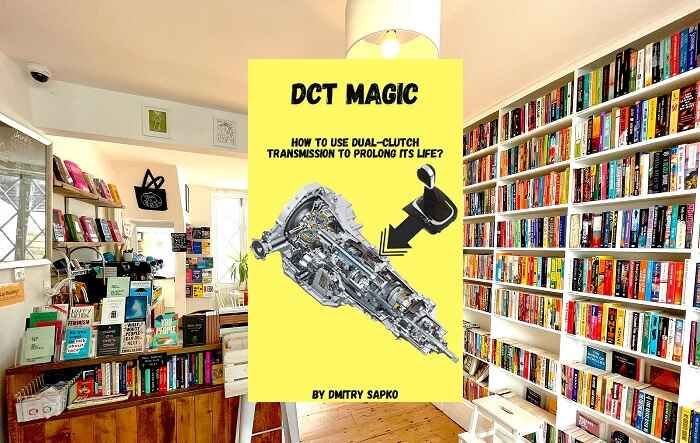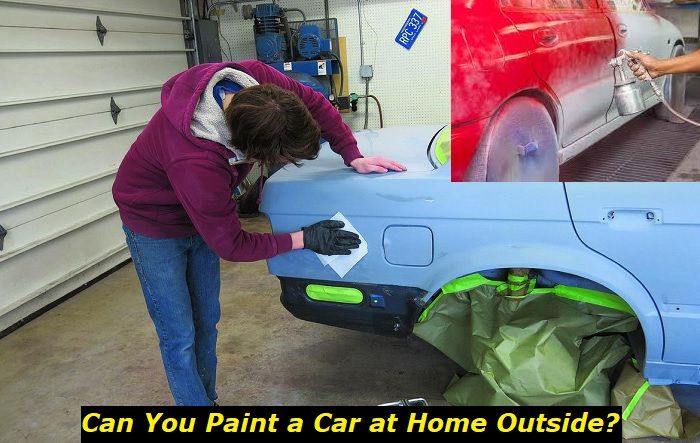Volkswagen AG is a huge corporation in Europe with branches all around the world. It sells around 10 million vehicles yearly and is one of the major players in the car market. Volkswagen is one of the leaders in the engine revolution offering new technological engines for cars and pioneering new technologies.
Yes, not all of their modern engines are very reliable and some of them prove to be pretty questionable. But still, VW is one of the companies that drives progress in the automotive sphere.
.jpg)
Today, I will tell you about all the Volkswagen engines that I ever reviewed on this blog. Short descriptions and links to full articles will help you learn much more about these engines and their technologies.
Also, I will update this article once I review any new VW engine.
Volkswagen 2.5L R5 (CBTA) engine
The CBTA engine code refers to the 2.5L in-line 5-cylinder EA855 engine. This is a pretty simple and reliable option for those who want durability and don't care about fuel consumption.
The 5-cylinder engine is perfectly known in the US because it was used in the Passat and Jetta. When equipped with a conventional automatic transmission, it shows truly awful fuel consumption. But this is the only serious problem with it.
The engine has only intake phasers, it has hydraulic lifters. There is no turbocharger in the construction. And also it has nothing special but the unusual 5-cylinder layout.
Key features and my opinion:
- Production years:2008-2014
- Average lifespan of 2.5L R5 CBTA:220,000-240,000 miles
- Fuel supply type:port injection
- Power range:170 hp
- Fuel efficiency:awful
- Engine block material:cast iron
- Engine reliability score:high
- The most common problems:unreliable fuel pump, problems with electronic throttle, weak sensors, crankcase ventilation problems.
Volkswagen 2.0 MPI engine
While Europe saw dozens of versions of the 2.0 MPI engine, in the US, there weren't so many of them. One of the prominent applications of such an engine is the Jetta which had a 2.0L MPI - simple and reliable but very sluggish engine.
The 2-liter engine is non-turbocharged, it has just 115 horsepower which is extremely low power for such vehicles as the Jetta. The gas mileage is reported to be 28 MPG on average and this is good, so the little power pays off in the cost of driving.
The engine is a 4-cylinder, it's as simple as a bicycle and there is just nothing to tell you about. Thanks to a lack of technologies, these engines can live long and cause almost no serious problems right until they drop because of age or mileage.
Key features and my opinion:
- Production years:2006-2016
- Average lifespan of 2.0 MPI:180,000-210,000 miles
- Fuel supply type:port injection
- Power range:115 hp
- Fuel efficiency:good
- Engine block material:cast iron
- Engine reliability score:high
- The most common problems:oil consumption problems, weak ignition coils, issues with wiring and sensors, engine knock with low octane number.
Volkswagen 1.5 TSI engine
The 1.5 TSI was mainly made for European vehicles. But in the US, this engine is also sold in the Taos and is planned with several other models.
Although this engine is known to have some common problems, it's not that bad. I should confirm that it looks much better than the older 1.4 TSI. The engine has the so-called ACT technology that turns off two cylinders when the load allows it to do so.
VW certainly aimed for economy when making this engine and the fuel economy is perfect. But the engine will still bother you with minor issues. The engine has phasers on both camshafts, there are hydraulic lifters, it has a turbocharger, and the timing system is driven by the belt.
Key features and my opinion:
- Production years:2017-now
- Average lifespan of 1.5 TSI:140,000-160,000 miles
- Fuel supply type:direct injection
- Power range:130-158 hp
- Fuel efficiency:excellent
- Engine block material:aluminum
- Engine reliability score:low
- The most common problems:very demanding to fuel quality, the turbocharger is potentially weak, low RPMs lead to jerking, ACT may cause issues at high mileage.
Volkswagen 2.0 TSI engine
The 2.0 TSI is a huge series of engines with dozens of available engine codes and types. This is one of the most massively produced and installed engines in the company. Interestingly, the engine is really good in terms of power-consumption ratio and it's known to work for a long time with proper maintenance.
The unusual thing is that the engine has a cast-iron block. Also, it's packed with technologies like the AVS, efficient phasers on both camshafts, IHI turbocharger, etc. The engine is pretty efficient in terms of fuel consumption and it can power big and heavy vehicles without significant loss of reliability.
I should also admit that all the common problems that I posted in my review don't really happen that often and owners are overall glad with how these engines work. But if something happens, the dealer is going to dig deep into your pocket as parts and labor are very expensive.
Key features and my opinion:
- Production years:2016-now
- Average lifespan of 2.0 TSI:160,000-180,000 miles
- Fuel supply type:combined injection (MPI + FSI)
- Power range:180-250 hp
- Fuel efficiency:good
- Engine block material:cast iron
- Engine reliability score:medium
- The most common problems:oil consumption is very typical, the timing chain isn't going to live forever, variable oil pump is weak, plastic water pump is weak.
Volkswagen 3.6L V6 EA390 CDVC engine
The 3.6 FSI engine that powers mainly the new Atlas and Atlas Cross in the US is one of the dinosaurs in the VW lineup. This is a non-turbo V6 offering a limited number of technologies implemented into the construction. If you love longevity, you will like it. But fuel saving is certainly not about this machine.
Quite obvious that you will have fun when driving this engine. But you will be surprised if you compare the fuel consumption with any other modern engine. The CDVC 3.6L VR6 engine isn't that old in terms of technology. It has phasers on both cams, hydraulic lifters, a good chain that drives the camshafts, and direct injection.
Unfortunately, several modern technological units took some life from this engine and its durability is not as good as you may expect it to be.
Key features and my opinion:
- Production years:2016-now
- Average lifespan of 3.6 VR6:190,000-210,000 miles
- Fuel supply type:direct injection
- Power range:250-280 hp
- Fuel efficiency:bad
- Engine block material:cast iron
- Engine reliability score:medium
- The most common problems:carbon buildup on intake valves, crankcase ventilation system issues, high-pressure fuel pump issues, various leaks.
Volkswagen 2.0 TSI EA888 evo4 engine
Although I've already told you about one 2.0L TSI engine, there is another one that I want to touch on in this article. This is the engine that powers the Golf R. It was only launched in 2022, so there is little to no information about the gen4 EA888 engine.
But still, I managed to learn that VW dumped the combined injection system and the gen4 engines again have just simple direct injection. At least, the Golf R engine does. Interestingly, it can produce a lot of power and torque even in stock and experts claim that this is one of the most upgrade-friendly turbo engines on the market.
There is a pack of modern technologies but I don't see many differences between gen3b engines and gen4 engines, so there is no point in listing them here.
Key features and my opinion:
- Production years:2022-now
- Average lifespan of 2.0 TSI:120,000-140,000 miles
- Fuel supply type:direct injection
- Power range:315 hp
- Fuel efficiency:average
- Engine block material:cast iron
- Engine reliability score:medium
- The most common problems:carbon buildup on intake valves, timing chain issues, oil consumption, overheating.
Volkswagen 2.0 TDI (EA188) engine
The EA188 series of diesel engines includes the 2.0 TDI machine. This is a legendary engine that was powering almost all models of Volkswagen and related brands in Europe. Some of these engines were also exported to the US but then Volkswagen got into a diesel scandal and got rid of all diesel engines in North America.
Interestingly, the 2.0 TDI is very good in terms of quality, durability, and also fuel consumption. These engines are relatively simple and some of them could easily live over 300,000 miles with almost zero problems. At least, they were pretty easy and cheap to repair.
Yes, you will still have all the diesel problems like the issues with vibrations or injection system problems. Anyway, these 2.0 TDI diesel engines proved to be more reliable and durable than almost any gas-powered engine with the same torque and power.
Key features and my opinion:
- Production years:2003-2011
- Average lifespan of 2.0 TDI:190,000-230,000 miles
- Fuel supply type:Pump Dusedirect injection
- Power range:140-170 hp
- Fuel efficiency:good
- Engine block material:cast iron
- Engine reliability score:high
- The most common problems:coolant leaks, oil consumption, pump duse injection problems, EGR and DPF issues.
Volkswagen EA211 1.4 TSI engine
The 1.4 TSI engine is one of the worst engines Volkswagen ever made. But the EA211 family actually proved to be a little better. It doesn't have a lot of common problems the previous awful generation of TSI engines had.
The EA211 engines have been made since 2012 and installed in almost all Volkswagen vehicles but the biggest ones. The engine had a lot of modifications and different codes and some of them were really good in terms of reliability.
All engines are all-aluminum, they have direct injection, and most of them also have IHI turbochargers. Phasers are implemented on both camshafts. These engines have belts in their timing systems, not chains, just like the 1.2 TSI. Hydraulic lifters are presented.
Key features and my opinion:
- Production years:2012-now
- Average lifespan of 1.4 TSI:140,000-170,000 miles
- Fuel supply type:direct injection
- Power range:122-150 hp
- Fuel efficiency:good
- Engine block material:aluminum
- Engine reliability score:medium
- The most common problems:very harsh engine work, premature timing belt wear, water pump issues, turbocharger actuator problems, oil consumption.
Volkswagen 3.2L VR6 (BUB) engine
The EA360 BUB engine is one of the legends of the VR6 family in Volkswagen's lineup. This is a V-shaped 6-cylinder engine that was mostly used in the Golf and Eos models. Also, Audi installed this engine in the A3 and TT Coupe vehicles.
These engines had a completely unique intake design called VSR. Also, they were advertised as sports-ready engines but they weren't actually good for any kind of sport.
The timing system is driven by two chains. The engine had a phaser and also there were hydraulic lifters. The engine was naturally aspirated. The FSI injection was advertised as Motronic - this is a Bosch-developed system of direct injection.
Key features and my opinion:
- Production years:2005-2010
- Average lifespan of 3.2 VR6:180,000-200,000 miles
- Fuel supply type:direct injection (Bosch Motronic)
- Power range:250 hp
- Fuel efficiency:awful
- Engine block material:cast iron
- Engine reliability score:medium
· The most common problems: oil consumption, expensive and weak timing chains, weak ignition coils, cooling system problems (complicated system with two pumps).
Volkswagen ID.4 Pro powertrain
Now, the EV era has taken over Volkswagen and the company grows EV sales as fast as it can. So, I'm adding the ID.4 Pro powertrain to my review to give you the opportunity to compare it with anything else this German company makes.
So, you will get FWD, one electric motor with 201 horsepower which is more than enough, an 82-kWh battery pack, and also 280 miles of claimed range per charge. I've heard that in real life the VW ID.4 consumes much more electricity than it's claimed to consume.
Anyway, this is pretty good power, wonderful torque, no issues with engine and transmission, and no need to buy fuel.
Key features and my opinion:
- Production years:2020-now
- Average lifespan of ID.4 powertrain:200,000-220,000 miles
- Fuel type:electricity
- Power range:146-302 hp
- Energy efficiency:average
- Electric motor type:permanent magnet brushless motor
- Powertrain reliability score:medium
- The most common problems:software problems, wiring issues, high energy consumption.
About the authors
The CarAraC research team is composed of seasoned auto mechanics and automotive industry professionals, including individuals with advanced degrees and certifications in their field. Our team members boast prestigious credentials, reflecting their extensive knowledge and skills. These qualifications include: IMI: Institute of the Motor Industry, ASE-Certified Master Automobile Technicians; Coventry University, Graduate of MA in Automotive Journalism; Politecnico di Torino, Italy, MS Automotive Engineering; Ss. Cyril and Methodius University in Skopje, Mechanical University in Skopje; TOC Automotive College; DHA Suffa University, Department of Mechanical Engineering






Add comment